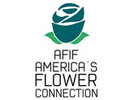The floral industry is expected to benefit from an anticipated dramatic drop in interest rates and the sustained demand for flowers and potted plants, according to Dr. Charlie Hall, Chief Economist for American Hort and Professor at Texas A&M University. Dr. Hall shared these economic insights during the Insights & Connections: Economic Outlook for the Floral Industry event, hosted by AFIF: Americas Flower Connection on September 10th in Miami.
Economic Trends Favorable for the Floral Industry
In his address, Dr. Hall highlighted the upcoming reduction in interest rates in the United States and its stimulatory effect on the economy. "We're going to see a dramatic reduction in interest rates and mortgage rates in 2025, which will stimulate the economy pretty handily," said Dr. Hall.
This positive forecast comes at a time when inflation is stabilizing in Colombia, a leading supplier of flowers to the U.S. market. Dr. Hall noted that inflation in Colombia is decreasing faster than expected, and while the Colombian peso has experienced volatility, he expects gradual stabilization. This stabilization will provide more predictability and cost control for U.S. businesses that rely on Colombian flower imports, offering a more secure operating environment for the floral industry.

Strong Consumer Demand for Flowers During Economic Downturns
Dr. Hall also addressed a long-standing trend in floral consumption patterns. "In every single economic downturn since 1948, we've seen a spike in the consumption of flowers and potted plants," he explained. While these spikes typically return to pre-crisis levels as the economy recovers, the recent COVID-19-induced increase in floral consumption has plateaued rather than decreased.
Dr. Hall pointed out that it's uncertain whether this plateau is driven by an increase in the number of flowers and plants sold, rising prices, or a combination of both. "This time, [consumption] has slowed down, it has plateaued but it has not dropped" he noted.
These insights highlight the resilience of demand for flowers and potted plants, despite uncertain economic times.

Event Recap and Industry Outlook
AFIF's Insights & Connections event, brought together industry leaders to explore the key economic factors shaping the floral industry in 2024 and beyond. Attendees had the opportunity to network and exchange ideas, while Dr. Hall's presentation offered crucial insights into how the economy is affecting both the domestic and international floral markets.
AFIF President Rodrigo Leiva, commented, "Dr. Hall's insights gave our industry a clearer understanding of the economic trends shaping our businesses. The discussions and connections from this event will undoubtedly influence how the importing cut flower industry navigates the months ahead."
For more information:
America's Flower Connection
afifnet.org










